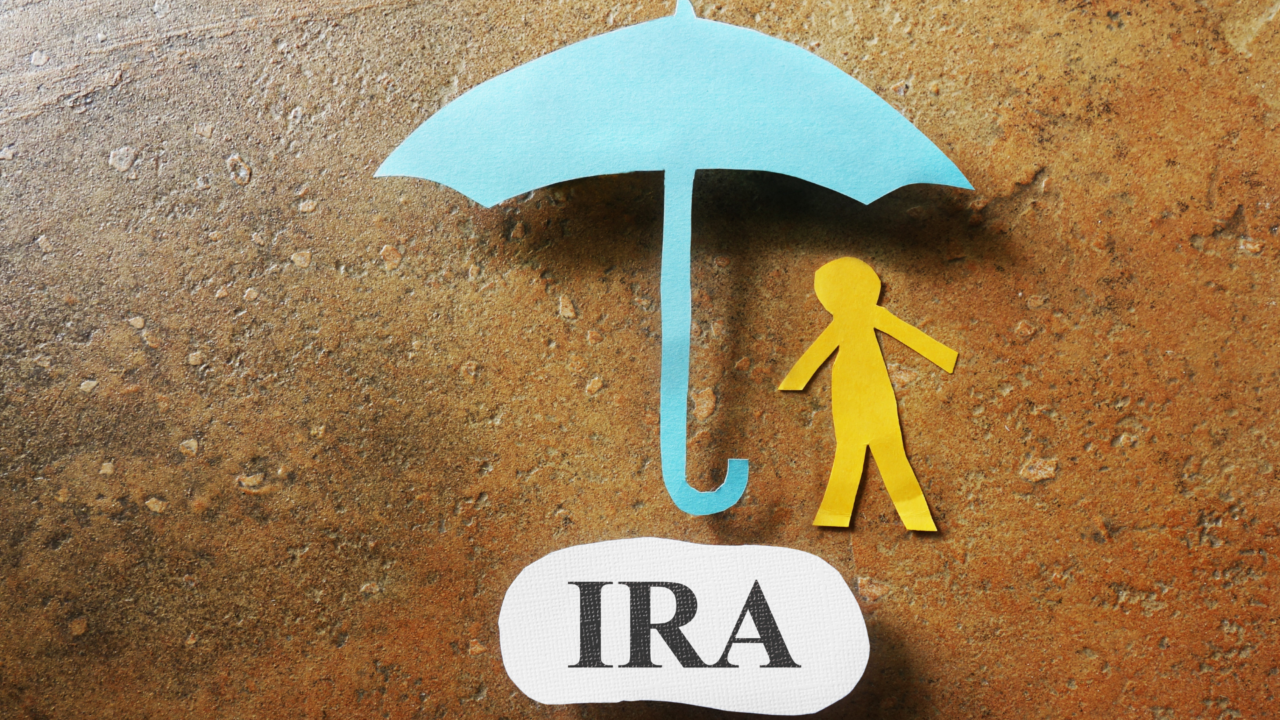When you invest in your retirement, you want to know that your efforts will yield desired results. Although risks are associated with every type of investment, some avenues can be considered safer than others. This is particularly true for investors who monitor the market and stay informed about rules and regulations. As such, when managed properly, self-directed IRAs can offer diligent investors a secure path to their future.
When you open a self-directed IRA, you gain various benefits, including enhanced diversification beyond traditional stocks and bonds, greater control over investment decisions, and assistance from financial professionals and advisors like Horizon Trust.
Are There Any Risks to Self-Directed IRAs?
As with all investments, there are potential risks associated with self-directed IRAs.
One risk of self-directed IRAs is the need to have a comprehensive understanding of their complexity and knowledge requirements. Self-directed IRAs often involve alternative assets, such as real estate and precious metals, which require specialized knowledge of associated risks and regulations.
Additionally, investments in self-directed IRAs may have poor liquidity (e.g., real estate), meaning you may not be able to address immediate financial needs.
Secondly, there is the potential for high fees. Examples of fees associated with self-directed IRAs include custodial, transaction, investment management, asset-specific, and hidden fees if you are not careful. We highly recommend comparing and contrasting custodial fees across at least three custodians or administrators.
To optimize your investment strategy and reduce unnecessary risks, we highly recommend shopping around for a custodian with a solid track record, experience in managing a wide range of investment options, strong compliance/support, and fair pricing for account setup, annual maintenance, and transaction fees.
7 Reasons Self-Directed IRAs Are Safe
1. Asset Diversity
Arguably, the number one principle of investing is diversification. We are often advised against putting all of our eggs in one basket, and that advice remains valid when it comes to investing. Typically, diversifying your stock portfolio is a good idea, as a significant downturn in the stock market can devastate your retirement plans.
When you invest through a self-directed IRA, you can expand your investments beyond stocks and bonds to include other assets such as real estate, precious metals, tax liens, rental properties, and cryptocurrency. This allows for true diversification while maximizing your potential returns and providing protection against stock market volatility.
2. Prioritization
While many investment firms are guided by fiduciary responsibility, that doesn’t always guarantee that your portfolio will receive the personal attention it deserves. This can make it harder to reach your goals or take advantage of unexpected investment opportunities.
A self-directed IRA gives you control over your investments, enabling you to make educated decisions about your immediate goals and long-term retirement plans, regardless of where you are in life. This control allows you to evaluate asset classes beyond stocks and bonds, aiming for higher-than-average returns that align with your retirement goals.
3. Built-In Tax Benefits
A self-directed IRA offers tax advantages, such as tax-deferred growth, where interest compounds your investments without immediate taxes on earnings until you are ready to withdraw upon retirement.
This is particularly true when you invest in real estate or other business opportunities that align with your interests or experience. Rental income in your self-directed IRA could be tax-deferred or tax-free, with profits protected from immediate taxation.
4. Protection From The Unexpected
No one wants to face bankruptcy or creditor issues, but unfortunately, these circumstances can arise. When they do, managing your everyday expenses becomes challenging, and you also need to consider your long-term investments. Fortunately, your self-directed IRA funds are protected from federal and state bankruptcy, ensuring that there will be no seizure or liquidation of your self-directed IRA assets to meet debts and other financial obligations.
If the worst happens, a properly set up beneficiary designation can transfer all your self-directed IRA assets to your chosen individual or organization after your passing.
Like other investment vehicles, self-directed IRAs also provide protection if something should happen to the account holder. Therefore, you can have peace of mind knowing that if you pass away, your funds will transfer to the specified individual(s).
5. Active And Passive Growth Opportunities.
A self-directed IRA gives you the unique ability to actively and passively contribute to your retirement fund. Similar to traditional and Roth IRAs, which rely on stock performance for growth, you can experience growth in favorable markets. However, a self-directed IRA offers the flexibility to make moves that actively increase your retirement fund.
This is especially true when it comes to real estate investments that result in regular fund transfers, such as rental properties, or one-time transfers, like property or deed sales. Investing in real estate allows you to benefit from property value appreciation and steady, passive rental income, with the proceeds being deposited back into your retirement savings.
6. Higher Return Rates
By investing in alternative assets with high-yield returns, a self-directed IRA can potentially help you reach your goals faster. While this may not be true in all cases, setting up a solid portfolio that leverages alternative assets with high-yield returns can lead to significant upfront growth and risk mitigation across different asset classes.
Higher return rates from alternative investments could prove more fruitful than investing solely in typical stocks, bonds, index funds, and mutual funds.
7. Maintain Checkbook Control
When you establish a self-directed IRA LLC, you gain checkbook control. This provides account holders with full authority to purchase assets freely. It means you won’t have to rely on your administrator or go through lengthy paperwork to make purchases. Instead, you can move funds, such as writing checks, whenever you want to invest in an asset. This can also help you avoid costly transactions or administrative fees that may arise..
Checkbook control adds a level of security for investors who want to maximize their efforts as they see fit. This is particularly beneficial for real estate investments, especially those that require quick action.
Investments of all types come with risks, but a self-directed IRA offers many investors a secure path toward positive growth. With asset diversity, direct control, and unparalleled flexibility, a self-directed IRA is worth considering. Contact us today to learn how to embark on a secure path to retirement.
How to Defend Against Fraud
While self-directed IRAs are relatively secure, it’s still keen to protect yourself against fraud. Follow these steps to reduce your risk of fraud.
Choose a Trusted Custodian. Select a reputable custodian with a solid track record. Read third-party reviews and consult with individuals who have experience with that custodian.
Ignore Unsolicited Offers. There is no shortage of scammers targeting SDIRA investors with promises of unrealistic returns. Ignore all such solicitations, including high-pressure sales tactics or requests for immediate decisions. Conduct independent research and verify the credentials of your custodian.
Secure Personal and Financial Information. Protect against identity theft and unauthorized access to your SDIRA by using strong passwords and enabling two-factor authentication if available. Avoid using public Wi-Fi networks for SDIRA access and, instead, use your own private home Wi-Fi network. Never provide account details or social security numbers to third-party entities.
Self-directed IRAs are a great way to maximize your retirement savings. As we have illustrated, the benefits of an SDIRA far outweigh its risks.
Quick Q&A Recap
Who is the beneficiary of a self-directed IRA?
The account holder designates beneficiaries for self-directed IRAs during the setup process. Beneficiaries can be anyone, including family members, charities, or organizations.
Are there any prohibited transactions for a self-directed IRA?
Yes, self-directed IRAs have prohibited transactions that involve using IRA funds for personal benefit.
How much are the average fees on a self-directed IRA?
The average fees for a self-directed IRA vary depending on the chosen custodian, financial institution, and investment option. Expect to pay higher fees compared to Traditional IRAs, as custodial services have the flexibility to impose various fees, including account setup, maintenance, and transaction fees.
If you have concerns about the fee structure of your self-directed IRA, we recommend consulting a finance professional and comparing fees across multiple custodian services.
Related Posts
July 23, 2024
SIMPLE IRA vs SIMPLE 401(k): Which One Is Better for My SMB?
Simple IRAs and Simple 401Ks have many similar features for your employees.…




